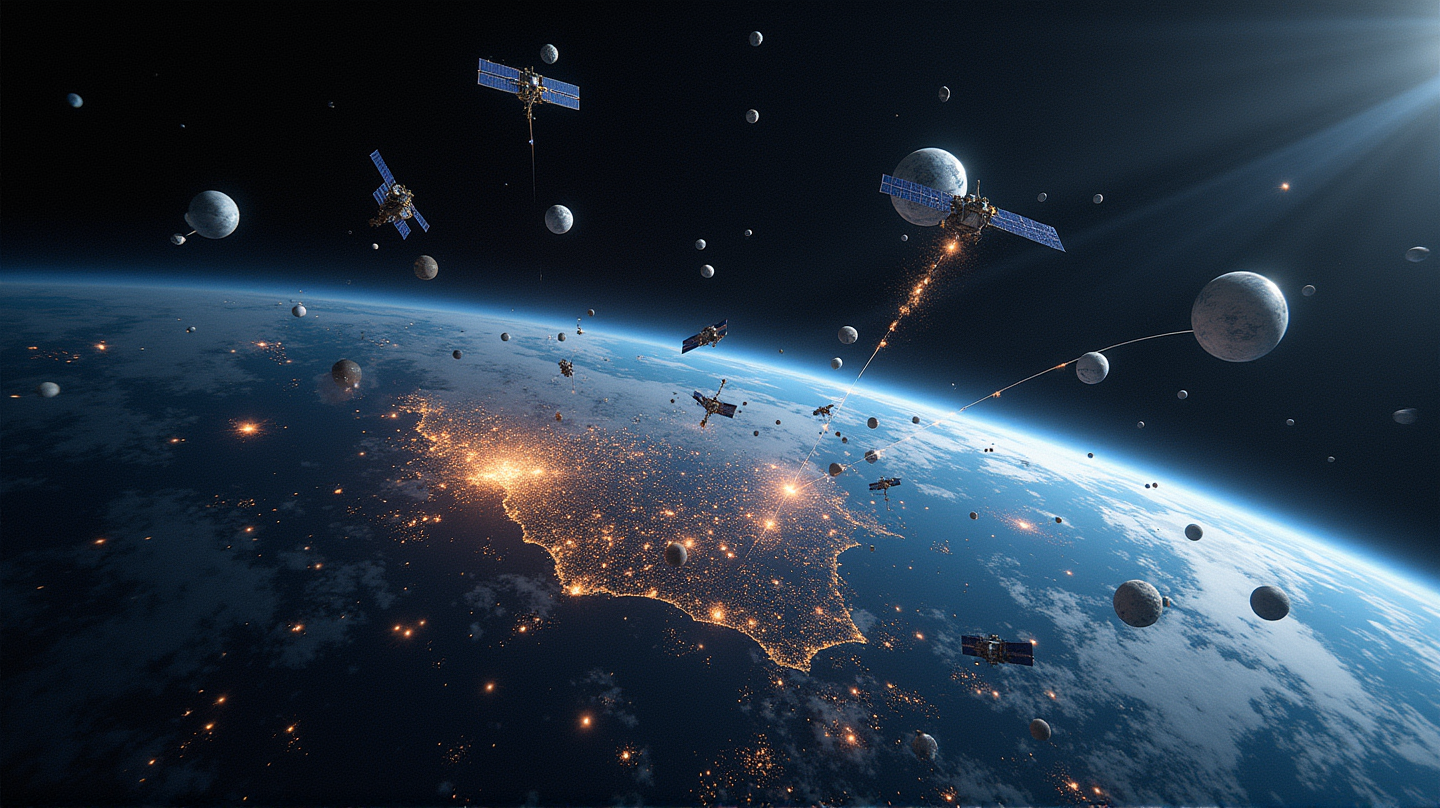China’s Satellite Swarms: A New Space Race Sparks Global Concerns
China's ambitious satellite projects spark global alarm as they raise fears of space debris, collisions, and military dominance.

In an era where space exploration plays a pivotal role in technological advancement, China is emerging as a major player with its ambitious satellite endeavors. Their plans to deploy thousands of satellites via the Guowang and Qianfan constellations have stirred global apprehension. These megaprojects, though aimed at enhancing communication systems and data collection, are contributing to unprecedented space congestion. According to Glass Almanac, concerns stem from increased risks of orbital collision and the irreversible impact on Earth’s orbital health.
China’s Expanding Satellite Empire
China’s strategy is bold, aiming to redefine the communications landscape through extensive satellite coverage. However, this aggressive expansion isn’t without its complications. By introducing an overwhelming number of satellites into Earth’s orbit, the potential for disastrous collisions intensifies. These collisions aren’t limited to operational satellites; the presence of myriad space debris adds another layer of complexity and danger.
Rocket Reentry Dilemma
Further compounding the issue is China’s current practice of unmanaged rocket reentries. Historically, some of these booster stages have re-entered Earth’s atmosphere in an uncontrolled manner, threatening inhabited regions below. Uncontrolled rocket stages not only heighten the risk of ground-level damage but also contribute to the fragmented debris left behind in space.
The Increasing Threat of Space Debris
This surge in satellite launches inevitably thickens the density of objects in orbit. While some newer technology, like the Yuanzheng-2 rockets, promises a safer end-of-mission trajectory, many older systems remain a concern. Rockets not designed for deorbiting can perpetuate their presence in orbit for decades, magnifying the congestion issue and complicating future missions.
How the World Views Chinese Satellite Ambitions
Globally, there’s a growing consensus demanding transparency and adherence to international space protocols. Critics argue that unrestricted activities show a disregard for shared orbital space rules. Without clear communication and regulatory cooperation, these practices can perpetuate a chaotic and dangerous space environment.
Collaborating for Orbital Sustainability
The time for innovation in managing these challenges is now. Addressing the orbital traffic requires not just international collaboration but the willingness of spacefaring nations to devise sustainable strategies. The future of space exploration and the protection of the night sky depend on these efforts. Solutions must include both technological innovation and the establishment of unified space governance to tackle potential hazards like the Kessler Syndrome.
As we look forward, the international community faces a choice: to harmonize efforts in regulating space traffic and debris or face a compromised path in our quest for the stars.

